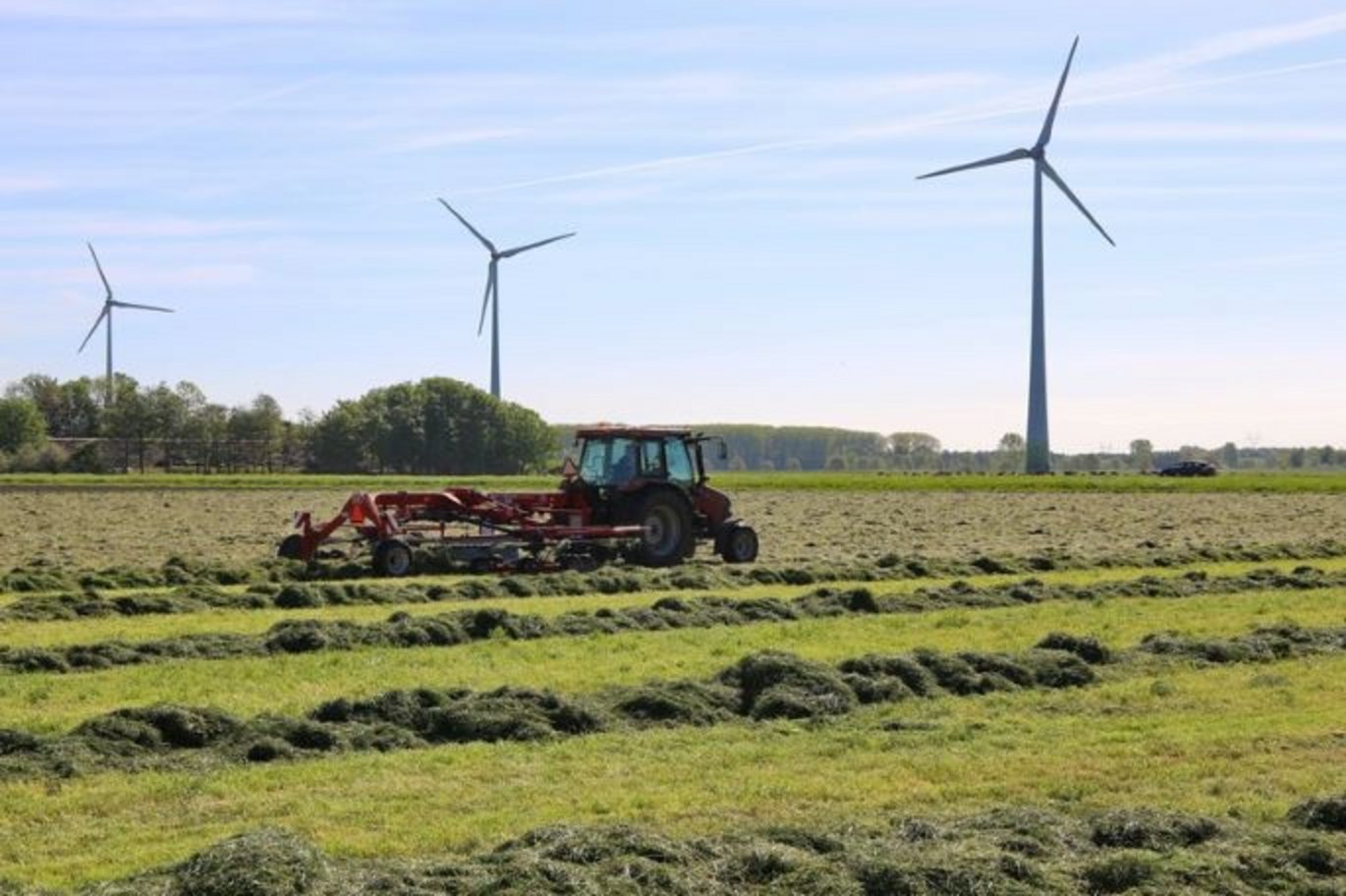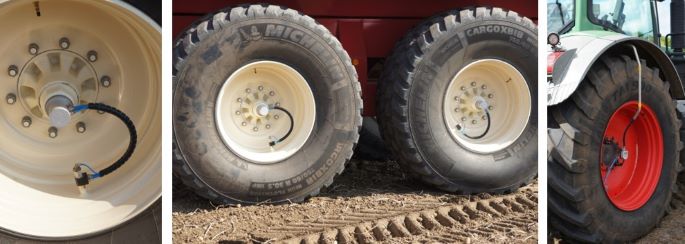High-skilled contract workers in sustainable soil management
Contract workers have more to offer than just driving their machinery. As they have an experience-based understanding of local conditions, they are a valuable source of information for most farmers. By shifting the focus from machinery to a service, contract workers could support sustainable soil management.

As a result of several developments in the agricultural sector, the role of contract workers in sustainable soil management has enlarged. Since the extension service became privatized in the 90s in the Netherlands, the role of commercial farm visitors diversified (Such as salespersons and suppliers of fertilizer, crop protection and feed). Farm visitors are generally acknowledged as an important source of information. Especially contract workers, as they are often in the field and observe local conditions.
Because of the growing interest of farmers in soil related challenges, contract workers begin to think more about the soil and translate soil challenges into actual soil management practices. Cumela, a branch organization for companies in soil related activities, acknowledges the role of contract workers in diligent soil management. According to Gerben Zijlstra, soil expert at Cumela, the role of contract workers is becoming more and more important. As most farms increase in scale, contract workers are getting more responsibilities. Contract workers today are not just seen as labor. They are becoming more involved in the production as a whole. For example in the planning, in performing cultivation activities and in making other cultivation related decisions. According to Gerben Zijlstra, some dairy farmers even ask contract workers to manage the whole cultivation from fertilization to ensilage.
As contract workers get responsibilities for several cultivation related decisions, the added value and thereby the competitiveness of contract workers is directly related to their practical understanding of soil and crop related issues.
Providing soil-related courses for contract workers
Parallel to the farmers’ interest in the soil, contract workers feel the need to improve their knowledge on soil processes. Cumela started providing several soil-related courses for contract workers to enable them to assist farmers in promoting sustainable soil management.
These courses are developed in co-operation with Aequator and provide knowledge on several soil types, soil challenges and measures to contribute to a better soil condition. Especially the translation of soil knowledge into soil management practices is valuable for contract workers and subsequently for farmers. The content of the courses is developed in consultation with other stakeholders to provide an unambiguous message to the farmers. However, Gerben admits that providing aligned information from all farm visitors is still work in progress.
High-skilled drivers are required for complex tasks
The payback period of machinery is generally shorter for contract workers than for farmers, enabling contract workers to invest in specialized machinery. An example of this can be in machinery equipped with GPS, NIRS technology or tires and on-board tire inflation systems. Since contract workers collect a lot of data with their equipment, it is possible to tune in with the suppliers of fertilizers and pesticides and develop digital task maps for variable rating applications.

Variable tire inflation system, photo provided by Cumela
As machinery and subsequently tasks are becoming more complex, high-skilled drivers are required, underlining the importance of in-service training. Trained contract workers will have a clear added value to farmers.
Whether the returns equal the costs of investments in machinery and knowledge is a question difficult to answer. Most contract workers cannot directly pass on all these costs in their service. Instead, they acknowledge the relevance of the benefits in improving their competitiveness. However, with the high investments involved in agricultural equipment, a better knowledge of the benefits on yields or lower inputs in fertilizer and chemicals is important.
Knowledge development - short-term investments and long-term benefits
Contract workers fulfill a crucial role in knowledge dissemination, as they are in close contact with farmers and ‘speak their language’. As contract workers have a larger working area and are often in the field, they are able to exchange practical and experience-based information from farm to farm. Additionally, contract workers are involved, to a broader extend, in field demonstrations, sharing experiences regarding cultivation related topics, than just in soil management. On top of that, several contractors hire advisors, to start the conversation with farmers and to provide advice on soil related challenges.
Contract workers currently still miss some essential knowledge to perform optimally. According to Gerben, the (financial) consequences of sustainable soil management are not sufficiently clear and require additional efforts in getting more insight into the short-term investments and long-term benefits, such as: ‘what are the returns on the investment in wide/low-pressure tires in 10 years?’. In general, the soil structure and compaction are of interest. Not only in relation to machinery, but also regarding the interaction between the soil structure and soil fertility and -functioning. Another field of interest includes the relation between soil biodiversity and soil mechanics. To conclude, contract workers are still in need of soil related knowledge, offering many research opportunities to the EJP SOIL Programme.